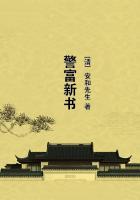Now nutriment and victuals are gotten either out of the territories belonging to the city or out of foreign countries. To have a city great and populous it is necessary that victuals may be brought from far unto it. And that victuals may be brought from remote and foreign parts unto it it behoves that her virtue attractive be of such power and strength as it be able to overcome the hardness and the sharpness of the regions, the height of the mountains, the descent of the valleys, the swiftness of the rivers, the rage of the seas, the dangers of the pirates, the uncertainty of the winds, the greatness of the charge, the evil passage of the ways, the envy of the bordering neighbours, the hatred of enemies, the emulation of competitors, the length of the time that is required for transportation, the dearths and necessities of the places from whence they must be brought, the natural dissension of nations, the contrariety of sects and opinions in religion, and other suchlike things, all which increase as the people increase and the affairs of the city: to conclude, that it grow to be so mighty and so great as it can overcome all the diligence and all the industry that man can use whatsoever. For how shall merchants be persuaded they can bring corn, for example, out of the Indies or Cathay to Rome, or the Romans expect to have it thence? But admit that either of them could so persuade themselves, who can yet assure them the seasons will be always good for corn, that the people stand to peace and quietness, that the passages be open and the ways be safe? Or what form or what course can be taken to bring provision to Rome by so long a way by land, in such sort and manner as the conductors thereof may be able to endure the travel and to wield the charge thereof? Now any one of these impediments or lets, without adding more to overthwart and cross it more, is enough to dissipate and scatter quite asunder the people of a city destitute of help and subject to so many accidents and chances.
Even one dearth, one famine, one violence of war, one interruption or stay of trade and traffic, one common loss to the merchants, or other suchlike accident will make (as winter doth the swallows) the people to seek another country.
The ordinary greatness of a city consisteth in these terms, with which it can hardly be contented. For the greatness that dependeth upon remote causes or hard means cannot long endure.
For every man will seek his commodity and ease where he may find it best. We must also add to these things aforesaid that great cities are more subject unto dearths than the little, for they need more sustenance and victuals. The plague also afflicteth them more surely and more often, with greater loss of people. And to speak in a word, great cities are subject to all the difficulties and hardness we have before declared because they need a great deal more.
So that, although men were as apt to generation in the height and pride of the Romans, greatness as in the first beginning thereof, yet for all that the people increased not proportionably. For the virtue nutritive of that city had no power to go further, so that in success of time the inhabitants, finding much want and less means to supply their lack of victual, either forbare to marry or, if they did marry, their children oppressed with penury, their parents affording them no relief, fled their own country and sought abroad for better fortune. To the which inconvenience the Romans willing to provide a remedy, they made choice of a number of poor citizens and sent them into colonies, where, like trees transplanted, they might have more room to better themselves both in condition and commodity, and by that means increase and multiply the faster.
By the selfsame reason mankind grown to a certain complete number hath grown no further. And it is three thousand years agone and more that the world was replenished as full with people as it is at this present, for the fruits of the earth and the plenty of victual doth not suffice to feed a greater number. In Mesopotamia mankind did first begin to propagate. From thence by success of time it increased and spread apace daily both far and near and having replenished the firm land they transported themselves into the islands of the sea; and so from our counties they have at length arrived by little and little to the counties we call the New World. And what is there under the sun that doth make man, with more horrible effusion of blood, to fight for, and with more cruelty, than the earth, food and commodity of habitation? The Suevians accounted it an honour and a glory to them to bring their confines by many hundred miles into a waste and wilderness. In the New World, in the isle of St. Dominic and the borders thereabout, the people chase and hunt men as we do deer and hares. The like do many of the people of Brazil, especially they whom we call Aymores, who tear in pieces and devour young boys and young girls alive, and open the bellies of the women great with child, and take the creatures out, and in the presence and sight of the fathers themselves eat them roasted upon the coals -- a most horrible thing to hear, much more to see it.
The people of Guinea for the most part live so poor and needy as they daily sell their own children for very vile price to the Moors, who carry them into Barbary, and to the Portugals, who send them to their islands, or sell them to the Castilians for the New World. The people of Peru do the like, who for little more than nothing give their children to them will have them, which proceedeth of misery, and of the impotency they have to bring them up and to maintain them. The Tartars and the Arabians live upon stealth and rapine; the Nasamoni and the Cafri, the most savage and barbarous people of all Ethiopia, live upon the spoils of others' shipwrecks, as the Portugals have many times felt.
It is also a thing known to all men how oft the French, the Dutch, the Goths, the Huns, the Avari, the Tartars and divers other nations, unable through their infinite multitude of people to live in their own countries, have left their confines and possessed themselves with other men's countries, to the utter ruin and destruction of the inhabitants therein. Hence it came to pass that within few ages all the provinces of Europe and of Asia became possessed, in a manner, of strange people, fled and run out of their counties and habitations either for the mighty multitude of people their country could not sustain, or for desire they had to lead a more commodious and easy life elsewhere, in greater plenty of good things.
The multitude again of thieves and murderers, whence doth it, I pray you, for the most part grow, but of necessity and want?
Differences, suits and quarrels, whence do they proceed but out of the straitness and the scantness of confines, boundaries, ditches, hedges and enclosures which men make about their farms and manors? Watchmen of the vineyards and of ripe fruits, gates, locks, bolts and mastiffs kept about the house, what do they argue else but that the world is hard and either ministreth not sufficient to our necessities or satisfieth not our greedy covetous desires? And what shall I remember arms of so many kinds and of so cruel sorts, what shall I speak of continual wars both on sea and land, that bringeth all things unto utter ruin, what of forts on passages, what of garrisons, bulwarks and munition?
Neither doth this lake of mischiefs contain all, for I must add to these the barrenness of soils, the scarcity and dearths of victual, the evil influence of the air, the contagious and dangerous diseases, the plagues, the earthquakes, the inundations both of seas and rivers, and such other accidents which destroy and overthrow now a city, now a kingdom, now a people, now some other thing, and are the let and stay that the number of men cannot increase and grow immoderately.















